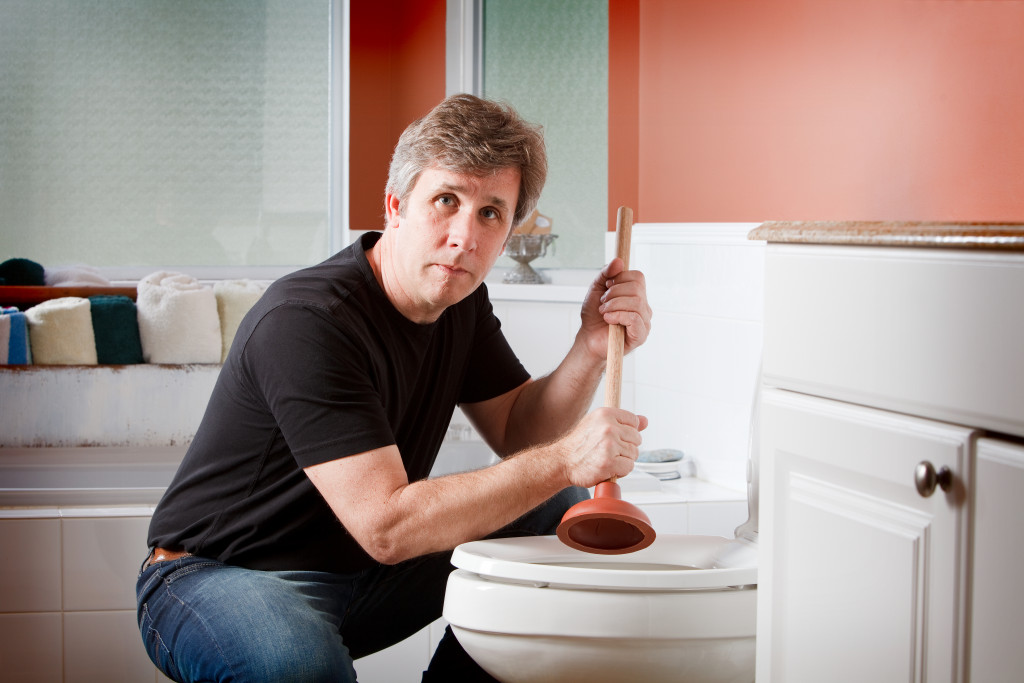• Clogged pipes can cause serious health risks, such as bacterial growth and insect infestations that can spread hazardous diseases.
• Common causes of clogs in pipes include flushing products, roots from trees, mineral buildup, and grease or soap residue.
• Preventative maintenance includes regularly cleaning drains, disposing of waste properly, and inspecting visible piping for signs of damage or leaks.
• Calling professionals to clear any blockages can help prevent other health risks from occurring due to clogged plumbing.
Every time you turn on the tap, flush the toilet or take a shower, you rely on your plumbing pipes to do their job. But what happens when those pipes become clogged? While many associates clogged pipes with minor inconveniences and costly repairs, the health risks of a clogged pipe can be much more serious—and sometimes even life-threatening. Here’s why it’s important to keep your plumbing clear and running smoothly.
Causes of Clogs in Plumbing Pipes
Pipes won’t be clogged for no reason. Usually, something is blocking the flow of water—and it’s usually some form of debris or solid material. Here are some of the most common causes of clogs in plumbing pipes:
Flushing Products: One of the most common causes is flushing things down the toilet that don’t belong there, such as wet wipes or feminine hygiene products. These items don’t belong in the plumbing system and can cause serious problems. As they are non-biodegradable, they may get caught in the pipes and create a long-term blockage.
Roots from Trees and Shrubs: Tree roots can grow through underground pipes, blocking water flow or bursting them open. This is especially common with older clay pipes more prone to breakage. Tree roots can also interfere with the drainage fields of septic tanks.
Mineral Buildup: If your pipes are constantly exposed to hard water, then mineral deposits like calcium, magnesium, and iron can build up in the pipe walls. This causes a gradual reduction in flow, eventually leading to total clogs. Especially if the pipes are old, the buildup can be difficult to clear without professional help.
Grease and Soap: Grease, oil, and other fatty substances stick to pipe walls over time. This can create a thick coating that blocks the water flow. It’s important to never pour grease down your sink drain—it should always be disposed of in the trash. Soap scum is another problem that often results from washing dishes or taking a shower, as soap residue makes a sticky film that coats the pipes.
Health Risks of Clogged Pipes
When it comes to clogged pipes, the consequences can go far beyond being a nuisance. The buildup of debris in plumbing pipes can seriously affect health and safety if not handled properly. Here are some of the most important health risks of clogged pipes:
Bacterial Growth
Clogged or slow-moving pipes can be a breeding ground for bacteria, including E. coli, Salmonella, and other harmful organisms. This bacteria can travel to the tap due to backflow and contaminate your water supply. It can even lead to serious illnesses such as diarrhea, vomiting and fever in severe cases.
Insect Infestation
Standing water in clogged pipes is ideal for insects to breed and lay eggs. Mosquitoes, cockroaches, rats and other pests can quickly become a nuisance in your home. These pests also carry diseases that can be hazardous to humans, so it’s important to act swiftly if you notice any infestations. For instance, rats can carry hantavirus, a potentially life-threatening virus.
Mold and Mildew Growth
If there is standing water in your pipes, it can create a damp environment where mold and mildew can thrive. Not only does this make your home look unsightly, but it also puts you at risk of respiratory illnesses caused by the spores released into the air. These illnesses include asthma, allergies and other respiratory infections.
Preventing Further Damage
To avoid these issues, it’s important to practice preventative maintenance on your plumbing system by regularly cleaning drains and disposing of waste properly. You should also inspect any visible piping for signs of damage or leaks that could cause future problems, such as corrosion.
If you suspect a clog in your pipes, you must hire pipeline cleaning companies immediately to clear the blockage. They can use pigging or other pipeline cleaning methods to safely remove any blockages and restore the flow of your pipes. This will help prevent further health risks from occurring due to clogged plumbing.
Clogged pipes can be much more than just an inconvenience; they pose real health risks to you and your family if left unchecked for too long. It’s important to practice preventative maintenance on your plumbing system and call a professional if you suspect a clog. Doing so will help keep your home safe from the risks of contaminated water.

